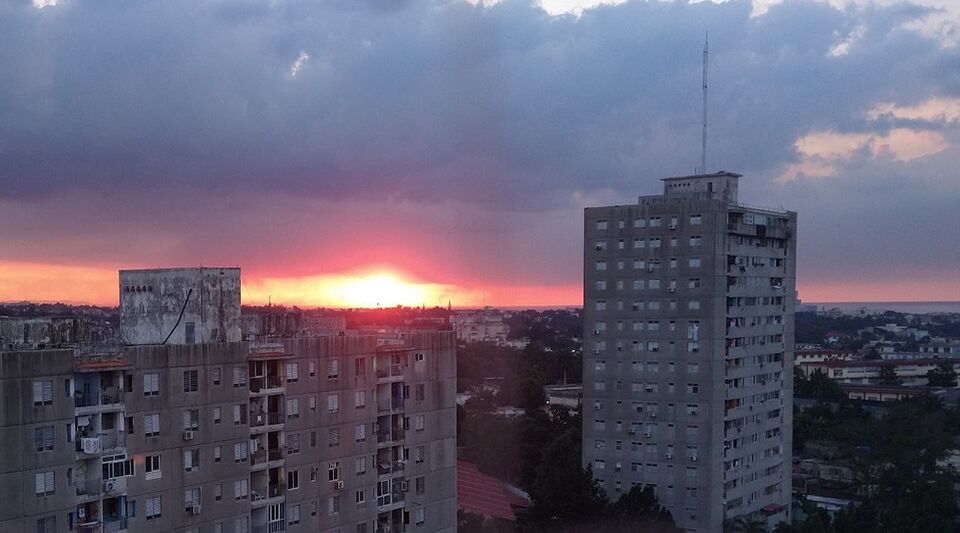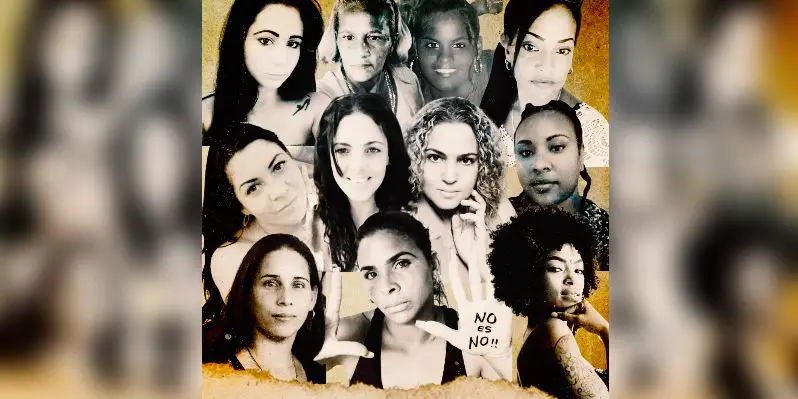The Government considers the illegal occupation of a home to be usurpation and the owners will be able to denounce it through criminal proceedings and not through administrative proceedings as up to now. The change is brought about by “the socioeconomic conditions in which the country currently operates, which require strengthening the mechanisms that guarantee institutionality, order and observance of legality for all people and reinforce the property rights recognized in the Constitution of the Republic”.
The quote comes from an opinion posted this friday in the official Gazette by the People’s Supreme Court, which thus responds to the doubts raised by lawyers and jurists after the approval of the Penal Code of 2022, which recovers the criminal type of usurpation for privately owned real estate.
“In practice it happens -explains the opinion- that certain people, or groups of these, illegally seize homes from which their owners are temporarily absent, or illegally enter and occupy premises belonging to public institutions or entities, causing, sometimes, serious social problems and difficulties in the functioning of the entities or institutions affected. This reality requires that the authorities in the territories have the legal tools to achieve their effective attention”.
The crime of usurpation for the occupation of other people’s property was present in the previous Penal Code, from 1987. However, two laws approved later annulled its application to privately owned homes.
The crime of usurpation for the occupation of other people’s property was present in the previous Penal Code, from 1987. However, two laws approved later annulled its application to private homes
If the occupied property was related to the possession of land and agricultural goods, it was subject to Decree-Law 125/91while if it was a residence, the General Housing Law number 65of the year 1988. Both texts considered that if what was usurped was a private property, the claim should be made through administrative channels, faster, moreover, than the criminal one, which was reserved to the State.
In 1995 the Supreme Court issued an opinion – the number 359, which is now repealed– in which he pronounced himself before the doubts generated by the Housing and land ownership laws. At that time there was a division between the magistrates who considered that to claim an occupation it was necessary to stick strictly to the administrative route, as indicated by the two aforementioned laws, while others interpreted that both appeals could be initiated, since the Penal Code had not been modified. .
The body then settled the matter and made it clear that the only existing route was the administrative one, since the two subsequent laws were more specific, as well as updated.
“Noting the expressed will of the legislator that these regulations should prevail (…) they must be privileged in their application by the will and mandate of the legislator,” the Opinion concluded. From him, in addition, derived another question. If an illegal squatter resisted leaving the property of others, the Police could intervene and, in the event of resistance, the crime of disobedience could not be applied, since the administrative and not the criminal route was applicable.
The Opinion published this Thursday puts an end to this situation, repeals the previous one, and establishes that the occupation of a home is considered a crime regardless of whether the owner is the State or any citizen.
The measure highlights the housing situation in Cuba, where those who emigrate to seek a better life cannot find anyone to sell it to because there is no money
“The main mission of Criminal Law is to protect the set of legal assets that are transcendental for society and people, facing those most harmful and aggressive actions or omissions considered as crimes, whose configuration is decided in the corresponding criminal process”, points out the new norm, 471.
From now on, once the illegitimate occupation is verified, the Police must be informed so that they coordinate with the competent authorities and adopt “measures aimed at promptly restoring the broken legality.”
The ruling calls for acting proportionally and protecting those who are not directly responsible (children or vulnerable elderly) and contemplating two scenarios: sentences of six months to two years (or a fine of 200 to 500 installments, or both) for those who illegally occupy a housing, and from two to five years (or a fine of 500 to 1,000 quotas or both), if violence is exercised. The sentences must take into account, insists the document, if the abandonment is voluntary or force has to be used.
The measure highlights the precarious housing situation in Cuba, where those who emigrate to seek a better life cannot find anyone to sell it to because there is no money. The poor condition of the housing fund is one of the major problems facing the Island and the State has fewer and fewer resources to allocate properties to vulnerable people, among other reasons due to the constant problems with construction materials, whose scarce stocks are used to the construction of hotels.
In these circumstances there are not a few people in extreme need who, forgotten by the Administration, decide to settle in the empty houses that the emigrants have not been able to sell before leaving the Island.
________________________
Collaborate with our work:
The team of 14ymedio He is committed to doing serious journalism that reflects the reality of deep Cuba. Thank you for accompanying us on this long road. We invite you to continue supporting us, but this time becoming a member of our newspaper. Together we can continue transforming journalism in Cuba.


















